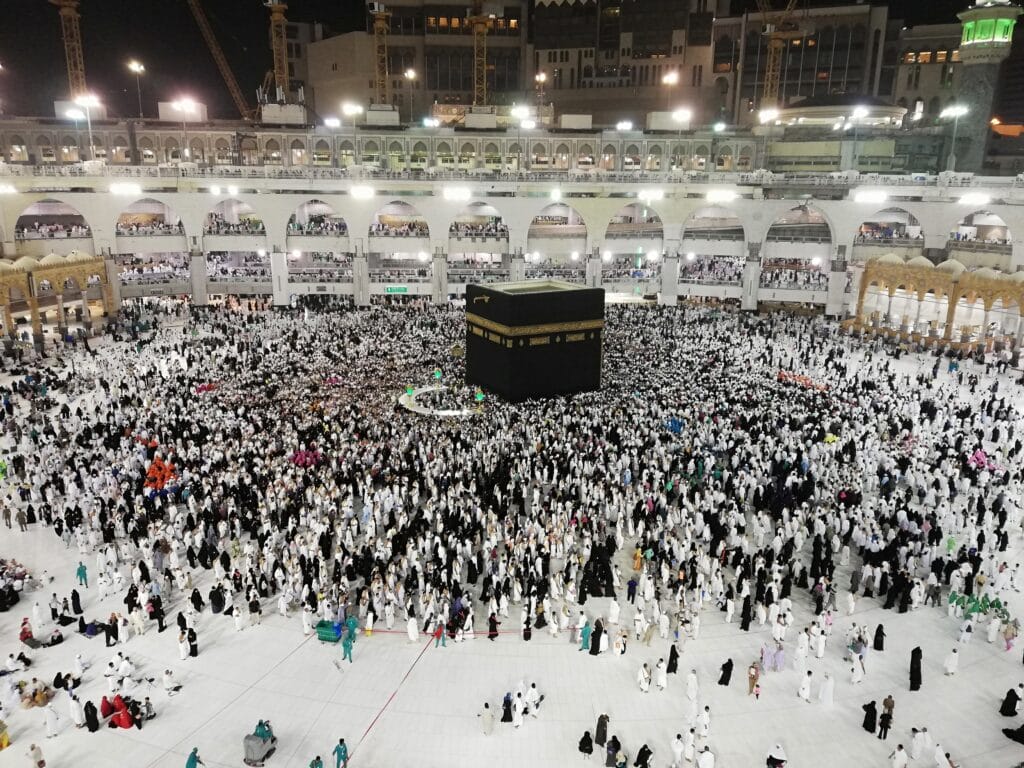Umrah, also known as the lesser pilgrimage, is a sacred journey undertaken by Muslims to the holy city of Mecca in Saudi Arabia. Unlike the Hajj, which is a mandatory pilgrimage for all able-bodied Muslims at least once in their lifetime, Umrah is a voluntary act of worship that can be performed at any time of the year. The spiritual significance of Umrah lies in its ability to cleanse the soul, seek forgiveness, and draw closer to Allah. It is a deeply personal and introspective journey that allows pilgrims to reflect on their faith and seek spiritual renewal.
The rituals of Umrah are rooted in the traditions of Prophet Muhammad (peace be upon him) and hold great significance in Islamic history. The journey begins with a state of ihram, a sacred state of purity and devotion, and culminates in the performance of Tawaf (circumambulation) around the Kaaba, Sa’i (walking between the hills of Safa and Marwah), and the cutting or shaving of the hair. These rituals symbolize the unity of the Muslim ummah (community) and the submission to the will of Allah. The spiritual journey of Umrah is a deeply personal experience that allows pilgrims to connect with their faith on a profound level.
Preparing for Umrah: Steps to Take Before the Journey
Preparing for Umrah requires careful planning and consideration of various logistical and spiritual aspects. Before embarking on the journey, it is essential for pilgrims to ensure that they are physically, mentally, and spiritually prepared for the experience. This includes seeking guidance from knowledgeable scholars, performing acts of worship such as fasting and charity, and purifying one’s intentions for undertaking the pilgrimage. Additionally, pilgrims must make practical arrangements such as obtaining a visa, booking accommodations, and arranging for transportation to and from Mecca.
In addition to logistical preparations, it is important for pilgrims to familiarize themselves with the rituals and etiquette of Umrah. This may involve studying the relevant Islamic texts, attending educational seminars, and seeking advice from experienced individuals who have performed Umrah before. Pilgrims should also make an effort to cultivate a mindset of humility, gratitude, and sincerity in anticipation of the spiritual journey ahead. By taking these steps before the journey, pilgrims can ensure that they are fully prepared to embark on this sacred pilgrimage with the right intentions and mindset.
Arriving in Mecca: The Beginning of the Umrah Experience
Arriving in Mecca marks the beginning of the Umrah experience, as pilgrims set foot in the holiest city in Islam and prepare to embark on their spiritual journey. The sight of the Kaaba, the most sacred site in Islam, is a powerful and awe-inspiring moment for pilgrims, as it serves as a physical manifestation of their faith and devotion. Upon arrival, pilgrims enter into a state of ihram by donning simple white garments for men and modest attire for women, symbolizing equality and humility before Allah.
The atmosphere in Mecca during the Umrah season is one of intense spirituality and devotion, as millions of Muslims from around the world converge on the city to perform their pilgrimage. The air is filled with the sound of prayers, recitations of the Quran, and the collective yearning for spiritual fulfillment. Pilgrims are enveloped in a sense of unity and brotherhood as they join together in worship, transcending cultural, linguistic, and national boundaries. The experience of arriving in Mecca is a profound and humbling one, as pilgrims prepare themselves to engage in the sacred rituals of Umrah and seek closeness to Allah.
Performing Umrah: A Step-by-Step Guide to the Rituals
The performance of Umrah consists of several key rituals that hold deep spiritual significance for Muslims. The first step is Tawaf, which involves circumambulating the Kaaba seven times in a counterclockwise direction while reciting prayers and supplications. This act symbolizes the unity of the Muslim ummah and the centrality of Allah in their lives. Following Tawaf, pilgrims perform Sa’i by walking seven times between the hills of Safa and Marwah, commemorating the actions of Hagar, the wife of Prophet Ibrahim (peace be upon him), as she sought water for her son Isma’il.
After completing Sa’i, male pilgrims proceed to have their hair either shaved or trimmed, while female pilgrims cut a small lock of hair as a symbol of purification and renewal. This act signifies the completion of the Umrah rituals and the shedding of worldly attachments in favor of spiritual devotion. Throughout these rituals, pilgrims are encouraged to engage in constant remembrance of Allah, seeking forgiveness for their sins and expressing gratitude for His blessings. The performance of Umrah is a deeply spiritual experience that allows pilgrims to connect with their faith on a profound level and seek closeness to Allah.
Reflecting on the Spiritual Significance of Umrah
The spiritual significance of Umrah lies in its ability to cleanse the soul, seek forgiveness, and draw closer to Allah. The rituals of Umrah are deeply rooted in Islamic history and tradition, serving as a physical manifestation of faith and devotion. Tawaf represents the unity of the Muslim ummah and the centrality of Allah in their lives, while Sa’i commemorates the actions of Hagar as she sought water for her son Isma’il. These rituals serve as powerful reminders of the importance of humility, gratitude, and submission to the will of Allah.
The experience of performing Umrah allows pilgrims to reflect on their faith, seek spiritual renewal, and cultivate a deeper connection with Allah. It provides an opportunity for introspection, self-improvement, and seeking forgiveness for past transgressions. The physical acts of worship involved in Umrah serve as a means of purifying the soul and shedding worldly attachments in favor of spiritual devotion. By reflecting on the spiritual significance of Umrah, pilgrims can gain a deeper understanding of their faith and strengthen their relationship with Allah.
Returning Home: Integrating the Umrah Experience into Daily Life
Upon returning home from their Umrah journey, pilgrims are faced with the challenge of integrating their spiritual experience into their daily lives. The profound impact of performing Umrah can often lead to feelings of spiritual rejuvenation and a renewed sense of purpose. It is important for pilgrims to channel these feelings into positive actions that reflect their newfound spiritual awareness. This may involve increasing acts of worship such as prayer, fasting, and charity, as well as seeking knowledge and understanding of Islamic teachings.
In addition to personal spiritual growth, returning from Umrah also presents an opportunity for pilgrims to share their experiences with others and inspire them to seek closeness to Allah. By sharing their journey and its impact on their lives, pilgrims can serve as ambassadors for Islam and encourage others to engage in acts of worship and spiritual reflection. Furthermore, integrating the lessons learned from Umrah into daily life can lead to positive changes in behavior, attitude, and relationships with others. By actively seeking to integrate the Umrah experience into daily life, pilgrims can ensure that its impact continues to resonate long after their return home.
Tips for a Successful and Meaningful Umrah Journey
Embarking on an Umrah journey requires careful planning, preparation, and consideration of various logistical and spiritual aspects. To ensure a successful and meaningful experience, pilgrims should seek guidance from knowledgeable scholars, study the rituals and etiquette of Umrah, and cultivate a mindset of humility, gratitude, and sincerity. It is also important to make practical arrangements such as obtaining a visa, booking accommodations, and arranging for transportation to and from Mecca.
During their time in Mecca, pilgrims should strive to maintain a state of mindfulness and constant remembrance of Allah while engaging in acts of worship such as Tawaf, Sa’i, and supplications. It is also important to take care of one’s physical well-being by staying hydrated, getting enough rest, and pacing oneself during the rituals. Additionally, pilgrims should make an effort to connect with other Muslims from around the world, fostering a sense of unity and brotherhood within the ummah.
Upon returning home from their Umrah journey, pilgrims should seek to integrate their spiritual experiences into their daily lives by increasing acts of worship such as prayer, fasting, charity, seeking knowledge about Islam, sharing their experiences with others, and making positive changes in behavior and attitude. By following these tips for a successful and meaningful Umrah journey, pilgrims can ensure that their experience has a lasting impact on their lives and strengthens their relationship with Allah.

